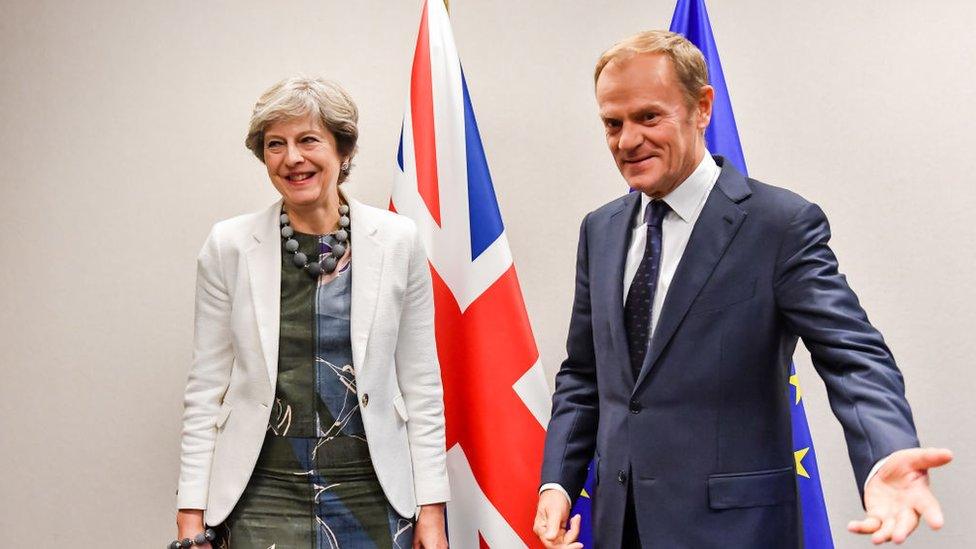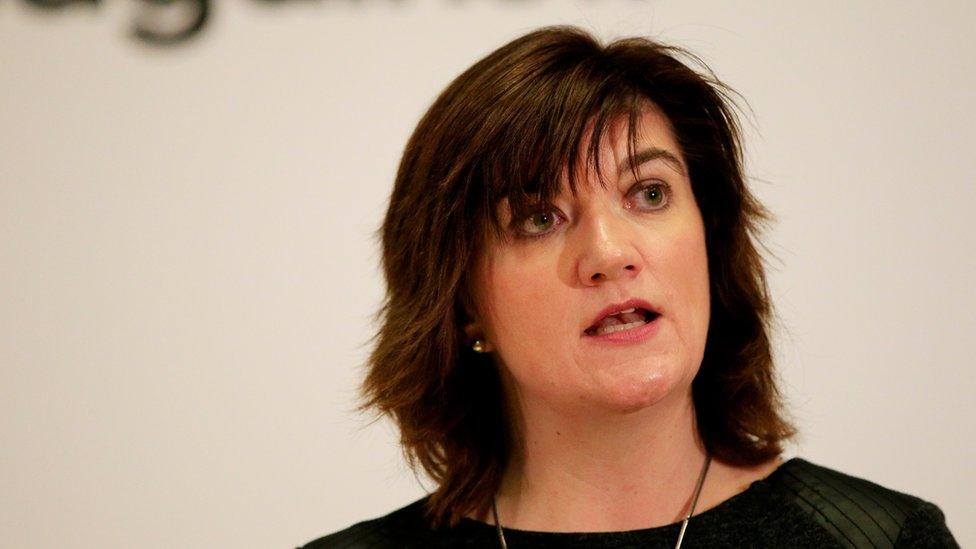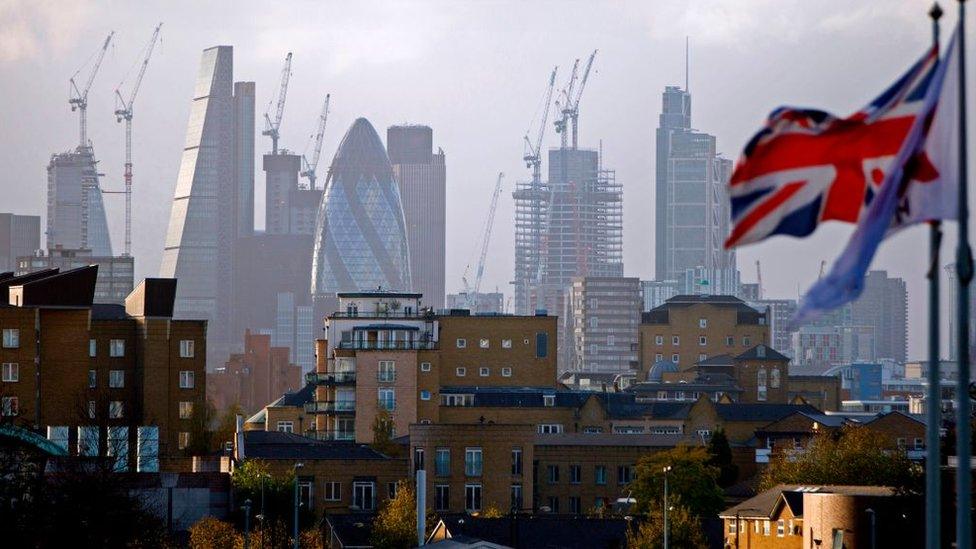Brexit transition deal is urgent, say select committee MPs
- Published
- comments

Theresa May must urgently agree a transitional deal with EU counterparts, say MPs
An influential group of MPs has urged Britain and the European Union to agree a "status quo" transition period following Britain's departure from the EU.
The Treasury Select Committee said that the temporary arrangement should be agreed as quickly as possible to ease business concerns over a "no deal" Brexit.
The committee's report said it "strongly supported" the prime minister's push for a comprehensive free trade deal which would keep borders as "frictionless" as possible.
But it said in order to reach that point, an implementation period would be necessary where the European Court of Justice (ECJ) was likely to retain supremacy over UK laws.
"An agreement between the UK and EU27 on 'standstill' transitional arrangements is now urgent," said Nicky Morgan, the Conservative chairwoman of the committee who campaigned for Remain before the referendum.
"The consequences of failing to reach an agreement are dramatic and damaging."
More from Kamal:
"Many businesses will begin to prepare for a 'no deal' outcome - moving jobs and activity, and incurring potentially unnecessary expenditure - early next year," said Ms Morgan.
"Transitional arrangements must therefore be straightforward enough to negotiate in a matter of weeks.
"This may well include accepting EU rules beyond those of the single market and customs union and it is likely to involve retaining, on a temporary basis, the jurisdiction of the ECJ, and the direct effect and supremacy of EU law.
"That is a price worth paying for stability and certainty after 30 March 2019."
'Furious race'
The government has said that it may agree to a strictly time-limited implementation phase after Brexit.
Britain would leave the EU customs union and the single market but would retain equivalent rules.
Mrs May has argued that if there is an agreement with the EU, it may mean the UK "will start off with the ECJ governing the rules that we are part of".
And in her Florence speech in September the prime minister said an implementation period could last two years.

Nicky Morgan says transition arrangements should be negotiated "in a matter of weeks"
Earlier this week, Donald Tusk, the president of the European Council, said that there was now a "furious race against time" to negotiate implementation arrangements and the framework for a new free trade deal.
"We are ready to move to the second phase, which will expand discussions to cover transition and the framework for the future relationship," he said on Monday.
The select committee said a transition deal could be followed by a further "adaption period" for some sectors such as financial services.
'Both sides suffer'
"The difference between a 'no-deal' scenario and the temporary preservation of the status quo is dramatic," said John Mann, a Labour member of the committee who supported Britain leaving the EU in the run up to the referendum.
"A 'no-deal' scenario would be damaging to both sides; a 'standstill' transition is in the interests of both the UK and the EU27."
"In particular, a 'standstill' transition would mitigate the major risk that Her Majesty's Revenue and Custom's Customs Declarations Service [a new system for controlling the flow of goods across borders] is not ready in time for 30 March 2019.
"If this project were to fail, the committee remains to be convinced that contingency plans exist to avoid the severe disruption to goods that would occur in an unplanned 'no-deal' scenario."
Many members of the financial services sector also support an implementation period.
Miles Celic, chief executive of the financial services sector lobby group TheCityUK, said that both sides would suffer if implementation arrangements were not agreed.
"Now that talks seem likely to move on to the second phase, EU and UK negotiators must not delay discussing a transitional deal," he said.

It's not just London that would suffer without a transition, says Miles Celic
"The longer it takes, the less value it has.
"Many firms are already well underway with their contingency plans.
"Those which remain are ready to press 'go' early in the new year.
"There is still time to slow or adapt these plans, but without progress soon, it may be too late.
"This isn't just about business leaving the UK.
"It is about the very high risk of jobs, capital and inward investment leaving Europe.
"The resulting fragmented markets will be of benefit to no-one, with costs likely to increase for customers right across the continent."
- Published12 December 2017
- Published8 December 2017